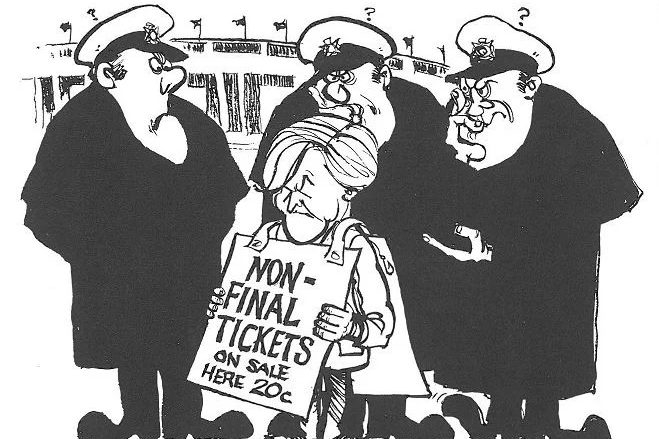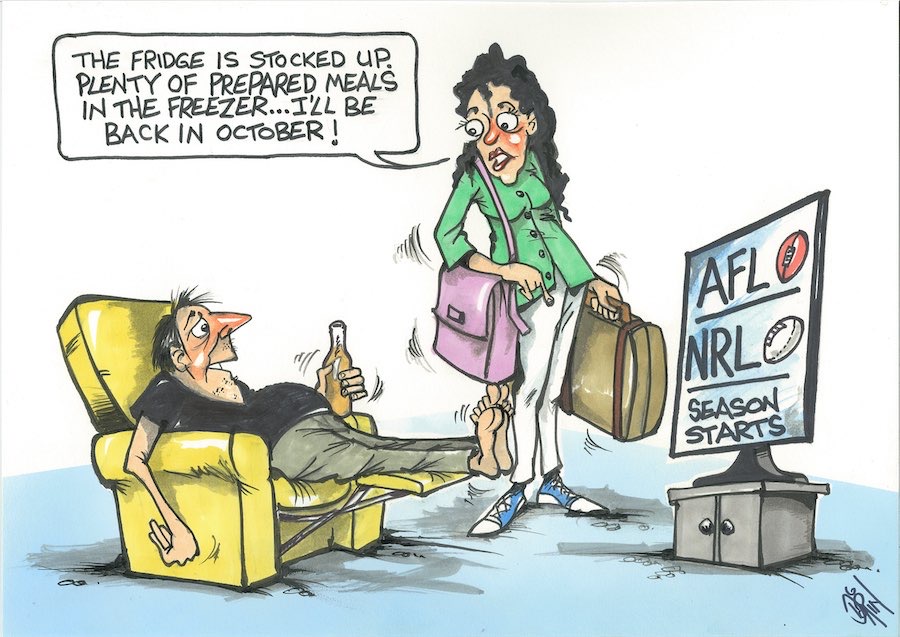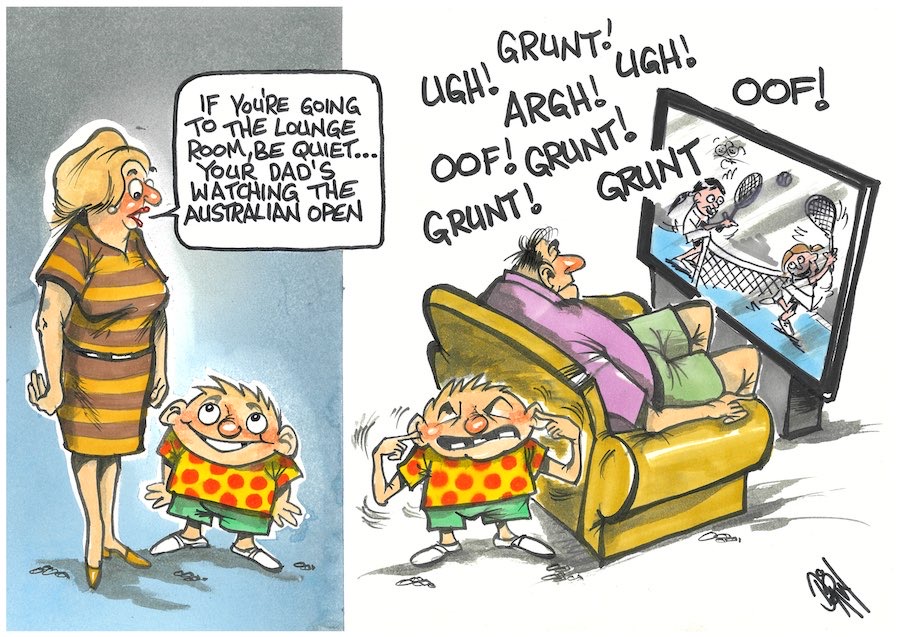I GET the impression sport is struggling to tread the fine line between social responsibility and financial sustainability.
Take the sponsorship of sports, such as tennis, by bookmakers. When watching a game on television we are bombarded with invitations to bet on the outcome, albeit with the reminder to “bet responsibly”.

Australia has a significant alcohol problem among young males, yet the uniform of the Australian Cricket team is emblazoned with “VB”.
There is a growing issue with obesity, with sport supposedly leading the fight against the disease. Yet KFC appears as one of the major sponsors of cricket in this country and McDonald’s has been prominent in its sponsorship at the Australian Open Tennis. What sort of message does that send to impressionable youth?
In the wake of the behaviour of Nick Kyrgios at the Open, where he abused the umpire, Australian Open boss, Craig Tilley, while not condoning his on-court antics came out and said that Kyrgios was good for business.
Then you have sports organisations saying that it was vital to have a level playing field when it comes to performance-enhancing drugs. But as soon as the Court of Arbitration for Sport banned 34 past and present Essendon players for 12 months in the wake of the supplement scandal you had some in the AFL community questioning whether their code should be part of World Anti-Doping.
Sports organisations sign up to WADA for a number of reasons, with one of these being that drug-free conditions provide some measure of a “level playing field”.
If this was not the case and drugs became part of the athlete’s routine, the price to the athlete’s health over time could be immeasurable.
While specific drug taking is considered illegal, the taking of performance-enhancing drugs is clearly cheating to get results.
There is also the issue of Federal government funding for facilities that would disappear if they didn’t adhere to the ASADA testing program.
The issue is more complex than it first appears, yet the point remains; performance-enhancing drugs do not have a place in sport.
Sport, it would appear, is still searching for its moral compass.
OVER the past three years Canberra has evolved into a virtual satellite suburb of Western Sydney. The Western Sydney Wanderers, the Sydney Thunder and GWS all regard Canberra as part of their catchment.
The worry is that people who make decisions on expansion will be under the impression that Canberra doesn’t need its own ACT-based teams in the A League, the Big Bash and the AFL because we are already aligned to existing clubs in Western Sydney.
Mind you, I think Canberra has missed the boat when it comes to having its own AFL team. Canberra’s history is dotted with attempts to change this. Let’s hope that in the future, it becomes a possibility.
Who can be trusted?
In a world of spin and confusion, there’s never been a more important time to support independent journalism in Canberra.
If you trust our work online and want to enforce the power of independent voices, I invite you to make a small contribution.
Every dollar of support is invested back into our journalism to help keep citynews.com.au strong and free.
Thank you,
Ian Meikle, editor




Leave a Reply